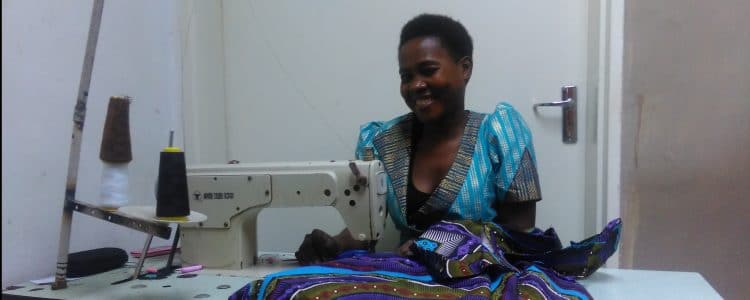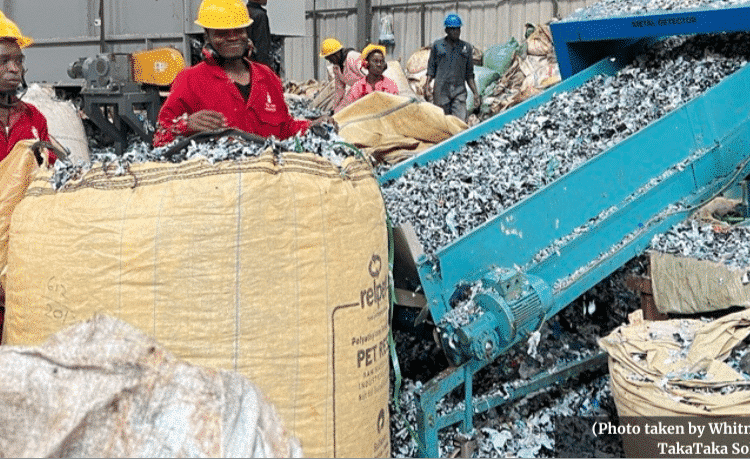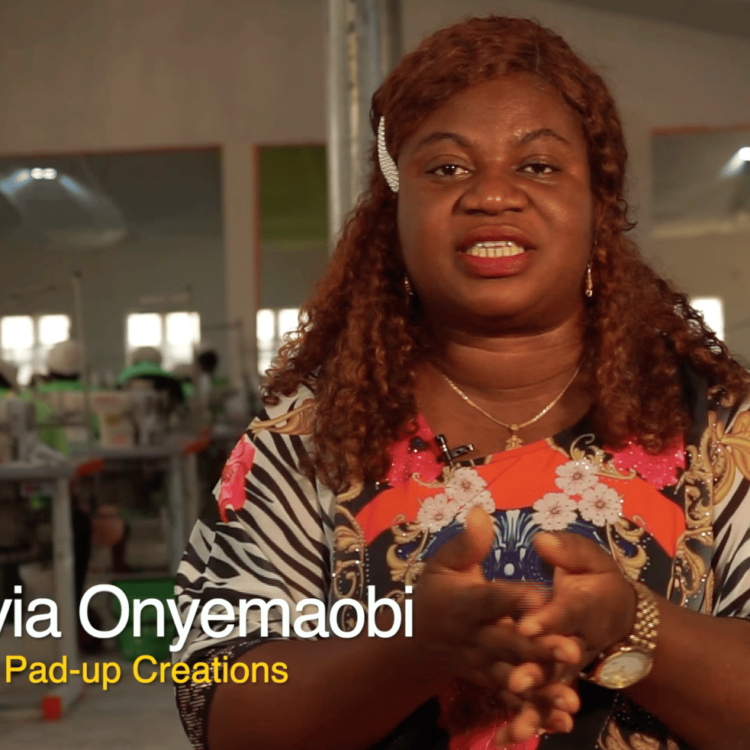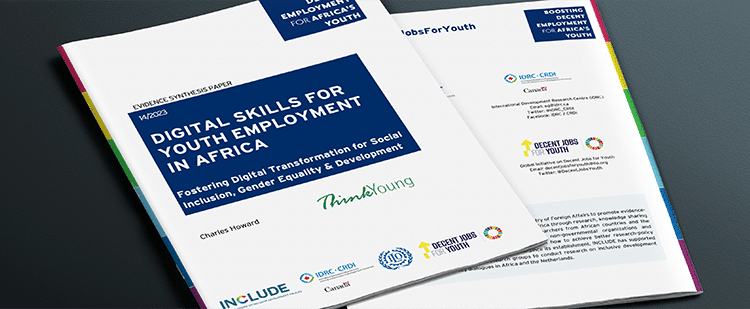
For the past six months PhD researcher Saskia Vossenberg travelled Malawi to collect stories of female entrepreneurs who use technological innovations to grow their businesses. She investigated why and how these women use technological innovation; do they benefit from it? How does it affect their lives and businesses and contribute to inclusive development? In this final blog she analyses her data and makes some suggestions for policymakers: Are we targeting the right group? And with the right interventions? What matters are interventions that enable processes and outcomes of empowerment and improved well-being, beyond an increase of income and assets.
‘Empowering’ female entrepreneurs
I am home again after an inspiring and adventurous period of data collection in Malawi. I have interviewed over 38 female entrepreneurs who make use of technological innovations in their businesses, as well as numerous key actors who implement these innovations. I studied three so-called ‘inclusive innovations’: an agricultural commodity exchange platform, a virtual business hub, and a mobile money system. All of these innovations seek to ‘empower’ female entrepreneurs and claim to contribute to poverty reduction and trigger local development. Before me lies the task of organizing and analysing my data to see what it says about the role that these innovations play in women’s lives and businesses, and where and when change is triggered. But, one question continues to puzzle me: Why is investing in female entrepreneurs so important for inclusive development, as a wide variety of stakeholders so enthusiastically proclaim?

Female entrepreneurs: An untapped resource?
When preparing for my field work, I reviewed numerous texts, policy frameworks and donor reports, including those of the Netherlands Ministry of Foreign Affairs, discussing the role of female entrepreneurs in development. Female entrepreneurs are treated as a ‘special group’ needing attention, and investing in female entrepreneurship is equated with investing in Africa’s future. Female entrepreneurs are lauded as an untapped source of job creation and as potential contributors to economic growth. The problem: female entrepreneurs are underperforming and excluded from access to financial and economic opportunities, assets and resources. The solution: financial and non-financial business development services for women, linking female entrepreneurs and their micro businesses with larger businesses in the value chain, and reforming the business environment. The Dutch Good Growth Fund (DGGF), for example, offers financing for small and medium-sized enterprises (SMEs) in emerging markets and developing countries, with a special focus on female entrepreneurs.
Entrepreneurs motivated by freedom and improved wellbeing
However, when looking at my data the relationship between investing in female entrepreneurs and inclusive development is not easy to detangle – nor is the problem and, thus, the solution. What emerges is that it is impossible to point to one homogenous group, aka ‘female entrepreneurs’, who, with the right investment, will start climbing the ladder towards business growth. Rather, my data suggests that female entrepreneurs are a diverse group in terms of business strategies, wants and needs. More particularly, the vast majority operate in the informal sector and fit the profile of so called ‘survival entrepreneurs’1. This group is not seeking to formalize or grow their businesses, or to create jobs, confirming other research on the importance of distinguishing between different types of entrepreneurs so that their specific needs can be addressed. Survival and growth-oriented entrepreneurs are distinct groups, not different stages in the trajectory of businesses, and follow a different logic2. But my data indicates that the term ‘survivalist’ does nor befit them – as if they contribute little else but getting by while economically underperforming. Rather, I found that these informal female entrepreneurs are motivated by what I call livelihood strategies for ‘improved wellbeing’. They are using their businesses as a material and social resource in the pursuit of more freedom and improved wellbeing for themselves and their families.
The importance of informality
The vast majority of female entrepreneurs I met operate in the informal sector, with little desire to ‘graduate’ to the formal sector. The women described to me plan for making their businesses more profitable or opening another business to increase cash flow. None of these plans entailed major expansion or the creation of jobs for others. In fact, in most cases, these businesses are far from expanding or improving profitability any time soon. Juggling a business on top of an enormous domestic workload (involving caring, cooking and cleaning), while making sure that enough cash comes in to keep the business running and pay for household essentials, means that most women are busy with managing a livelihood. Attending business training courses or trading via a commodity exchange will not change that. The cash generated by their businesses is limited and gets quickly ‘eaten up’ by business running costs, farm inputs costs and in buying necessities such as food, health care, transport, school fees and housing. Often, the women do not control how the revenue is invested as it is the role of the husband to decide and allocate financial resources. In some cases, it is just not the right time for business expansion, because money and time needs to be spent on caring for babies and elders or on children’s school fees. As Grace explained: “Once my youngest daughter has completed her studies to be a gynaecologist, I will use the money to grow the shop again and buy more livestock”.
Of course, I met women who are an exception to this norm. Mphatso, for example, employs over 35 people to manufacture high-quality designer clothes, which she sells to the market. Recently, she developed a web shop so she can access new markets and sell her clothes and jewellery internationally. Most likely, this will boost sales and lead to exports in the coming years, which means that production will be scaled up and she will need to hire more people. Proudly, she showed us through her shop and factory. When I asked her about the working conditions of her staff she indicated that “at the moment, I can only hire people on a piece-work basis. If I were to give them a contract, I would have to pay for the pension scheme, taxes and insurance and my running costs would quadruple, instantly making my business unviable. I cannot afford to take the risk and leave all these people unemployed”.
Target the right group with appropriate support
Mphatso operates her business partly in the formal economy and partly in the informal economy. An export licence cannot be obtained without formalization, but, in this case, the production and hiring of workers is done informally. Such hybrid businesses are common, raising questions about the assumption that formalization is an effective (and desirable) strategy towards business graduation. While her business has the potential to grow, it does not automatically mean that this growth will result in steady, well paid jobs with social benefits or the formalization of all aspects of the business. The case of Mphatso also made me wonder about ‘who’ is targeted by inclusive innovation and how. Mphatso, having the ability to accumulate capital and business knowledge, and a domestic worker to manage her home, probably can grow her business without this support. Are we targeting the right group? And with the right interventions?
Strategies for improved wellbeing
As for the inclusive innovations I studied, they all take a ‘missing ingredient’ approach3, based on the assumption that by providing the right ingredient (business management knowledge, access to markets, more money) entrepreneurs will automatically navigate their businesses towards improved performance (profit) and re-invest for business growth. However, the vast majority of the women in my sample operate with little prospects or desire to expand the business. Rather, they expressed a wide variety of different aims and goals for their businesses. I am thinking of Stella, who is secretly planning to divorce her husband and use the business to quickly accumulate capital to build a house to rent. Expanding and commercializing her farm and producing more is not her strategy, because it will not generate money quickly enough and she is in a hurry to escape an abusive marriage. I am also thinking of the female smallholders I met who are proud of using a market innovation because this as they say: “affirms our status of being in business, which is seen as atypical for a woman”. Then there is young Mary, who has a 7-month old baby with a young man who migrated to South Africa in search of a job. She cannot depend on the remittances he sends her and wishes to use her farming as a means to be independent and delay ‘being married off’. Mary, Sophie and Andrea are using the revenue from their mobile money micro-business to pay their university fees and those of their siblings. Becoming a mobile money agent has enabled them to pick up their studies and pay their own way, but none of them intend to stay in this business for long. They see it as a ‘moneymaker’, having something to do, or as a step towards getting a paid job with good benefits such as with the government, a private company or an NGO. Then there are those like Joanna and Mary who started their businesses in retirement, after their children had left home. For them, the business is a way of keeping busy and topping up their small pension, and perhaps for their children to take over one day. They manage their businesses within the boundaries of their labour and management capacity.
All of these women use their businesses as a livelihood strategy, to generate a combination of financial and social resources to enable them to cope with shocks and changes and overcome the multiple constraints on market engagement in the pursuit of more freedom. In some cases, growing or expanding their business is an important strategy, but in most cases the business is a means to an end due to a lack of other options for income generation and they are not motivated to grow the business beyond what they can manage on top of their domestic responsibilities and within their capacity in their particular phase of life.

Are we asking the right question? The need for new theories of change
For female entrepreneurs who are not pursuing a business growth strategy, but who, instead, employ a variety of strategies to improve their wellbeing, business development support and finance programmes that try to provide a missing ingredient are inadequate. What is needed is a different intervention rationale – one that is more attuned to the risks, aspirations and circumstances of informal female entrepreneurs. One that systematically integrates promotion strategies for business growth, increased income and improved productivity, with strategies that reduce vulnerability, redistribute resources, and combat inequality, harassment and exclusion at home and in the market.4 This indicates that the most important thing to ask when designing policies and programmes is ‘what works’, ‘for what’ and ‘for whom’. Existing entrepreneurship development policies provide too little to support the bulk of informal entrepreneurs. Female entrepreneurs in the informal economy (the vast majority) motivated by more freedom and improved well-being need much more than financing and business development services. Being marginalized in different ways, they are in need of a more intensive package of strategies to break out of subsistence production and survival entrepreneurship. Such strategies need to be designed around the right question, stemming from an ‘inclusive development’ approach, not an ‘inclusive growth’ approach. What matters are interventions that enable processes and outcomes of empowerment and improved well-being, beyond an increase of income and assets.
I believe that such interventions should be forged on theories of change informed by asking: ‘How can we best equip women entrepreneurs with useful new resources (financial and non-financial) that support them in their strategies for the improved wellbeing of themselves and their families? If not, most enterprise development instruments (with the occasional exception) will remain tailored to benefit a small group of (mostly male) growth-oriented entrepreneurs in a small sample of male-dominated sectors. They will fail to address the specific needs and wants of informal female entrepreneurs. And, they will miss out on crucial impact areas for inclusive development, such as more freedom, equality and well-being.
Footnotes
1. See also: GEDI (2014) Female entrepreneurship index . Global Entrepreneurship and Development Institute. And also: Buvinic, M., Furst-Nichols, R. and Pryor, E.C. (2013) A roadmap for promoting women’s economic empowerment. United Nations Foundation and ExxonMobil Foundation.
2. Berner, E., Gomez, G. and Knorringa, P. (2012) ‘Helping a large number of people become a little less poor: The logic of survival entrepreneurs.’ European Journal of Development Research, 24(3): 382–396.
3. Berner, E., Gomez, G. and Knorringa, P. (2012) ‘Helping a large number of people become a little less poor: The logic of survival entrepreneurs.’ European Journal of Development Research, 24(3): 382–396.
4. Vossenberg (2016) Gender-Aware Women’s Entrepreneurship Development for Inclusive Development in Sub-Saharan Africa. Published online at INCLUDE Knowledge Platform for Inclusive Development.





